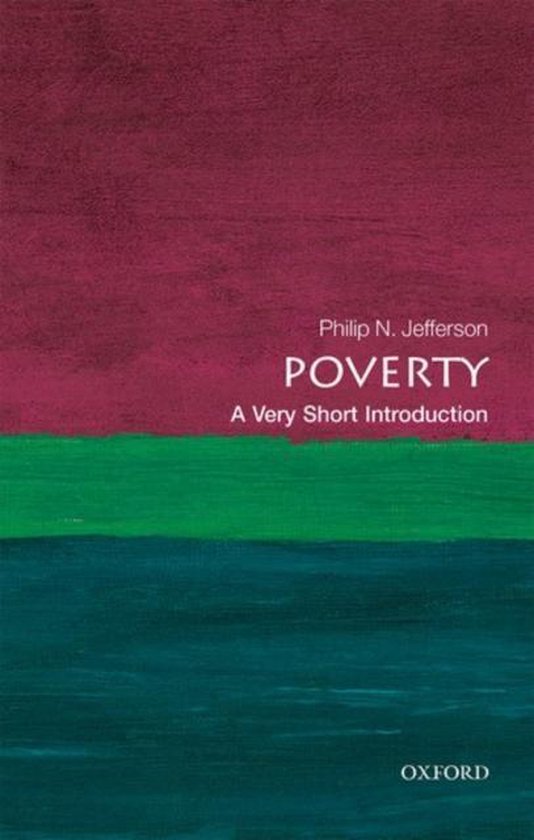
Poverty
This Very Short Introduction considers who the poor are, where they live, what their lives are like, and what obstacles or barriers they face. Looking at the complex issues that cause the prevalence, depth, and severity of poverty to vary across countries and over time, it considers possible future solutions.
No one wants to live in poverty. Few people would want others to do so. Yet, millions of people worldwide live in poverty. According to the World Bank, over 700 million people lived on less than US $2 a day in 2013. Why is that? What has been done about it in the past? And what is being done about it now? In this Very Short Introduction Philip N. Jefferson explores how the answers to these questions lie in the social, political, economic, educational, and technological processes that impact all of us throughout our lives. The degree of vulnerability is all that differentiates us. He shows how a person's level of vulnerability to adverse changes in their life is very much dependent on the circumstances of their birth, including where their family lived, the schools they attended, whether it was peacetime or wartime, whether they had access to clean water, and whether they are male or female. Arguing that whilst poverty is ancient and enduring, the conversation about it is always new and evolving, Jefferson looks at the history of poverty, and the practical and analytical efforts we have made to eradicate it, and the prospects for further poverty alleviation in the future. ABOUT THE SERIES: The Very Short Introductions series from Oxford University Press contains hundreds of titles in almost every subject area. These pocket-sized books are the perfect way to get ahead in a new subject quickly. Our expert authors combine facts, analysis, perspective, new ideas, and enthusiasm to make interesting and challenging topics highly readable.
No one wants to live in poverty. Few people would want others to do so. Yet, millions of people worldwide live in poverty. According to the World Bank, over 700 million people lived on less than US $2 a day in 2013. Why is that? What has been done about it in the past? And what is being done about it now? In this Very Short Introduction Philip N. Jefferson explores how the answers to these questions lie in the social, political, economic, educational, and technological processes that impact all of us throughout our lives. The degree of vulnerability is all that differentiates us. He shows how a person's level of vulnerability to adverse changes in their life is very much dependent on the circumstances of their birth, including where their family lived, the schools they attended, whether it was peacetime or wartime, whether they had access to clean water, and whether they are male or female. Arguing that whilst poverty is ancient and enduring, the conversation about it is always new and evolving, Jefferson looks at the history of poverty, and the practical and analytical efforts we have made to eradicate it, and the prospects for further poverty alleviation in the future. ABOUT THE SERIES: The Very Short Introductions series from Oxford University Press contains hundreds of titles in almost every subject area. These pocket-sized books are the perfect way to get ahead in a new subject quickly. Our expert authors combine facts, analysis, perspective, new ideas, and enthusiasm to make interesting and challenging topics highly readable.
| Auteur | | Philip N. Jefferson |
| Taal | | Engels |
| Type | | Paperback |
| Categorie | | Mens & Maatschappij |